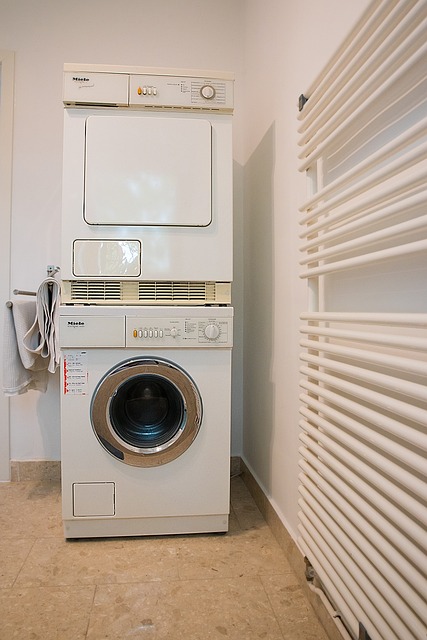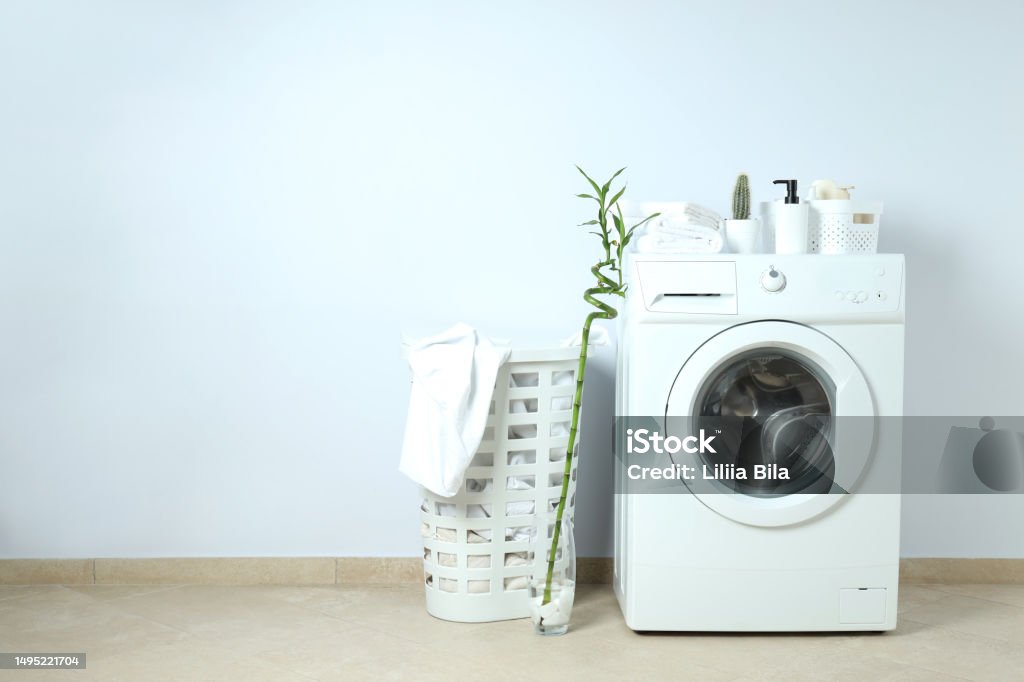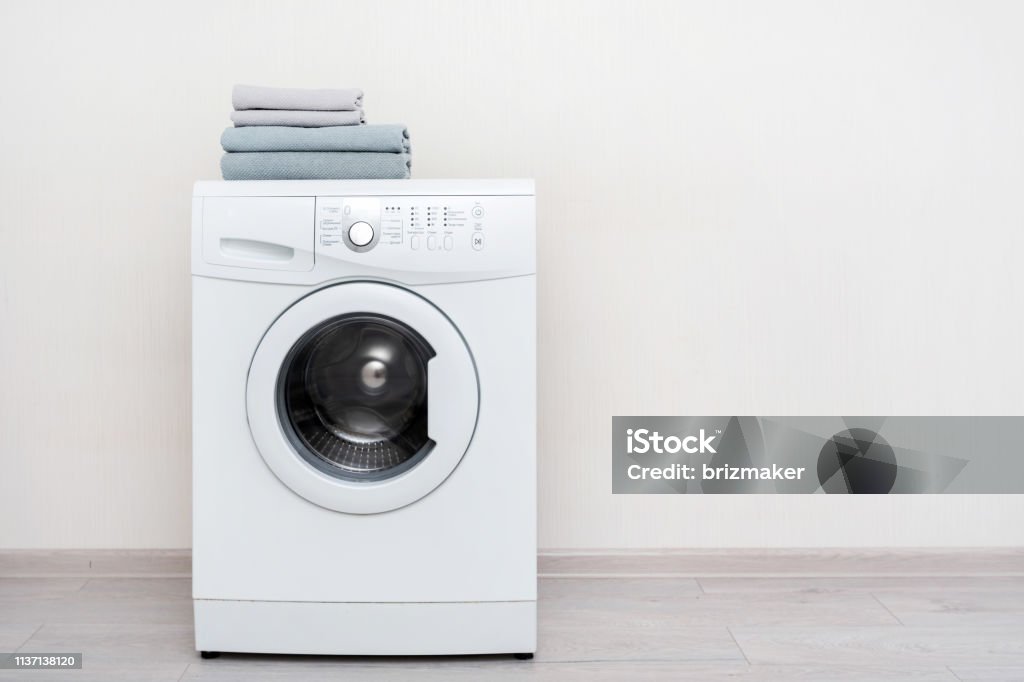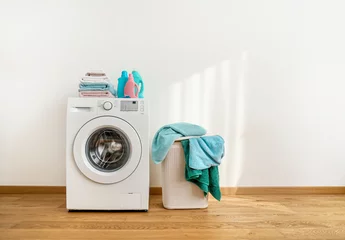Semi-Automatic Washing Machines: A Comprehensive Guide

Introduction to Semi-Automatic Washing Machines
Semi-automaticwashing machines are popular household appliances designed to make laundry tasks more manageable. Unlike fully automatic machines, semi-automatic ones require some manual intervention, offering users more control over the washing process.
How Semi-Automatic Washing Machines Work

Semi Automatic Washing Machine 2024
Both the washing and the rinsing and spinning tubs are part of these machines. After loading the clothes and adding detergent to the washing tub, users need to fill the tub with water manually. The clothing is moved to the rinsing tub for additional cleaning when the washing cycle is finished.
Advantages of Semi-Automatic Washing Machines
Semi-automatic washing machines are preferred by many due to their affordability, water efficiency, and flexibility in washing different types of fabrics. Additionally, they consume less electricity compared to fully automatic models, making them cost-effective in the long run.

Things to Take Into Account Before Purchasing a Semi-Automatic Washing Machine
Semi Automatic Washing Machine 2024
Before purchasing a semi-automatic washing machine, consumers should consider factors such as capacity, space availability, energy efficiency ratings, and additional features like lint filters and buzzer alerts.
Top Brands in Semi-Automatic Washing Machines
Semi Automatic Washing Machine 2024
Several reputable brands manufacture semi-automatic washing machines, including Whirlpool, LG, Samsung, Godrej, and Haier.To accommodate a range of customer preferences, each brand offers a selection of models with varying capacities and features.
Washing machines that are semi-automated and fully automated are compared.

Semi Automatic Washing Machine 2024
While semi-automatic machines require manual intervention for certain tasks, fully automatic machines offer greater convenience by handling the entire washing process automatically. The decision between the two is based on personal tastes and financial limitations.
Tips for Using Semi-Automatic Washing Machines Efficiently
Semi Automatic Washing Machine 2024
To maximize the performance of a semi-automatic washing machine, users should sort laundry items by color and fabric type, use the appropriate water level settings, and avoid overloading the machine. Frequent upkeep, such as cleaning the filters and bathtubs, is also necessary for maximum performance.
Maintenance and Cleaning of Semi-Automatic Washing Machines

Semi Automatic Washing Machine 2024
Regular maintenance tasks for semi-automatic washing machines include cleaning the lint filter, scrubbing the tubs to remove residue, and checking for any leaks or blockages in the drainage system. By following the manufacturer’s instructions, you can extend the appliance’s life.
Troubleshooting Common Issues with Semi-Automatic Washing Machines
Semi Automatic Washing Machine 2024
Drainage problems, excessive noise when in use, and spin cycle malfunctions are common concerns with semi-automatic washing machines. Troubleshooting tips may vary depending on the specific issue, but consulting the user manual is often the first step.
Eco-Friendly Features in Semi-Automatic Washing Machines
Semi Automatic Washing Machine 2024
Eco-friendly features like water-saving settings, energy-efficient motors, and short wash cycles that reduce resource consumption are found in a lot of contemporary semi-automatic washing machines. These characteristics help to lessen the negative effects of laundry on the environment..
Cost-Effectiveness of Semi-Automatic Washing Machines

Semi Automatic Washing Machine 2024
In addition to being affordable upfront, semi-automatic washing machines offer long-term cost savings through lower water and energy consumption. Their simple design and fewer electronic components also translate to lower maintenance costs over time.
Innovations in Semi-Automatic Washing Machine Technology
Semi Automatic Washing Machine 2024
Manufacturers are continually innovating semi-automatic washing machine technology to improve efficiency, performance, and user convenience. Recent advancements include digital control panels, inbuilt heaters for hot water washes, and enhanced durability features.

User Reviews and Testimonials
Semi Automatic Washing Machine 2024
Testimonials and user evaluations offer insightful information about the dependability and performance of semi-automatic washing machines. Prospective buyers can benefit from reading firsthand experiences and recommendations before making a purchase decision.
Conclusion
Semi Automatic Washing Machine 2024
For homes looking for cost-effectiveness, productivity, and control over their laundry schedules, semi-automatic washing machines present a sensible option. With proper usage and maintenance, these appliances can simplify the washing process while minimizing resource consumption and environmental impact.
FAQs
Which brand is best for washing machine?
Determining the “best” brand for a washing machine can depend on various factors such as personal preferences, budget, features needed, reliability, and customer service. Some popular and well-regarded brands in the washing machine market include:
- Samsung
- LG
- Whirlpool
- Bosch
- GE Appliances
- Maytag
- Electrolux
- Miele
It’s essential to research and compare models within these brands based on your specific requirements and priorities, such as capacity, energy efficiency, washing programs, and warranty coverage, before making a purchase decision. Additionally, reading reviews and seeking recommendations from friends or family members can also help in selecting the right washing machine brand for your needs.
Which washing machine is best in KG?
The “best” washing machine in terms of KG (kilograms) typically refers to the capacity of the washing machine drum, which indicates how much laundry the machine can handle in a single load. The ideal capacity depends on your household’s laundry needs. Here’s a general guideline:
- Small households (1-2 people): 6-8 kg capacity
- Medium households (3-4 people): 8-10 kg capacity
- Large households (5 or more people): 10+ kg capacity
It’s essential to consider your typical laundry volume and frequency when selecting the appropriate capacity for your needs. Make sure to also consider factors such as available space, energy efficiency, and features offered by the washing machine models you’re considering.
Who is the king of washing machine?
As of my last update in January 2022, there isn’t a single “king” of washing machines as it’s a competitive industry with several prominent brands. However, some well-known manufacturers renowned for their quality washing machines include LG, Samsung, Whirlpool, Bosch, and Miele. Each brand has its own strengths and features that appeal to different consumers, so the “best” washing machine can vary depending on individual needs and preferences. It’s advisable to research and compare features, reviews, and warranties before making a purchase decision.
Which washing machine is No 1?
As of my last update in January 2022, determining the “number one” washing machine brand can be subjective and depends on various factors such as quality, features, customer satisfaction, and regional preferences. However, some brands like LG, Samsung, and Whirlpool are often recognized for their innovative technologies, reliable performance, and wide range of options catering to different budgets and needs. It’s essential to research and consider factors such as reliability, energy efficiency, durability, and customer service when determining which washing machine is the best fit for your requirements.
Is there a 5 star washing machine?
Yes, there are washing machines that are rated with five stars for energy efficiency. Energy efficiency ratings are provided by regulatory bodies or organizations in different countries to indicate how efficiently an appliance uses energy. In some regions, such as Australia and India, appliances like washing machines are rated on a star system, with a higher number of stars indicating higher energy efficiency.
Manufacturers often strive to produce washing machines with higher energy efficiency ratings to appeal to environmentally conscious consumers and to meet regulatory requirements. It’s advisable to look for washing machines with high energy efficiency ratings to save on energy consumption and reduce environmental impact over time.